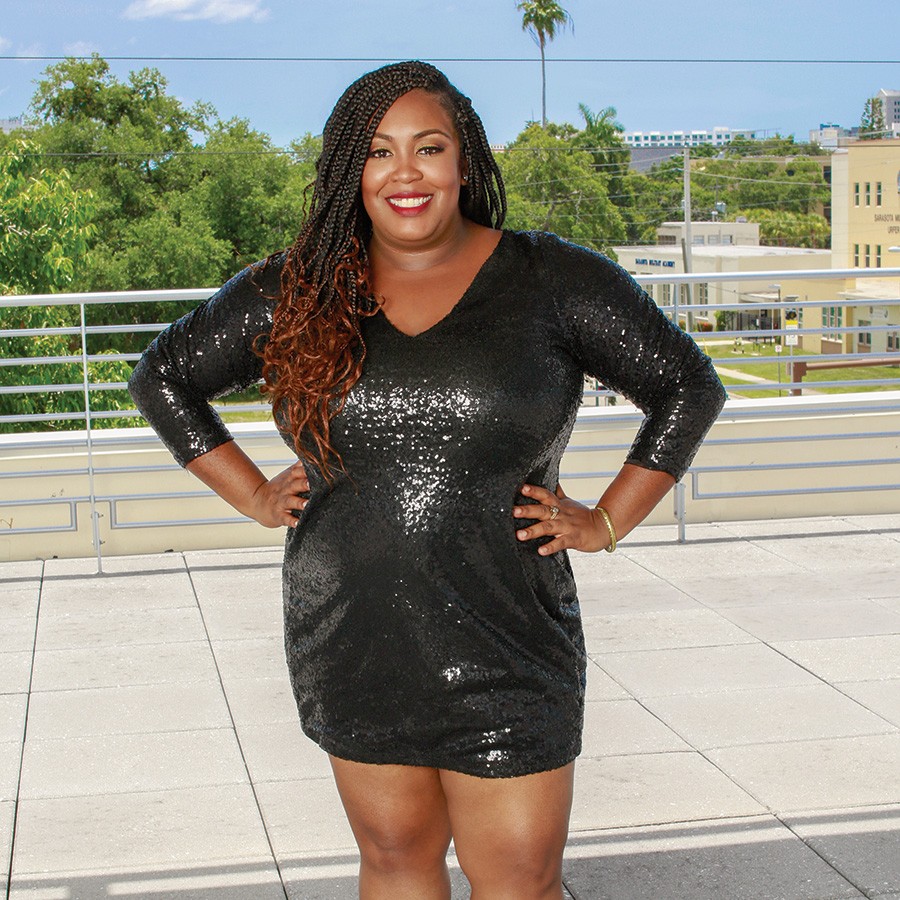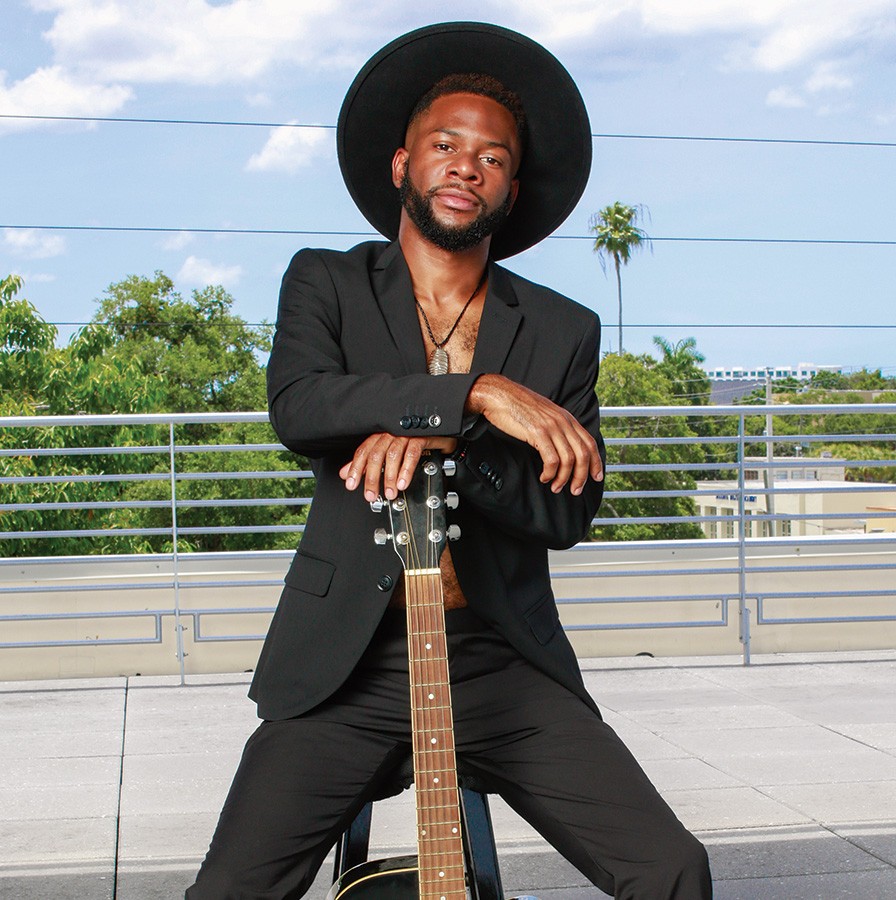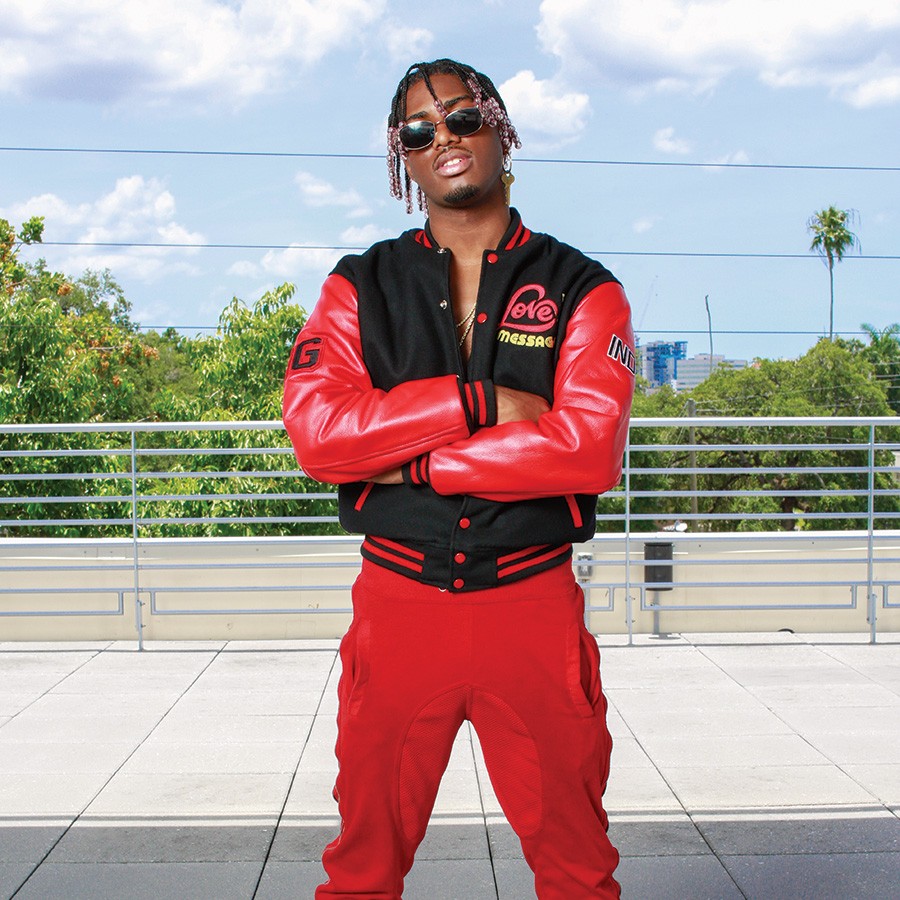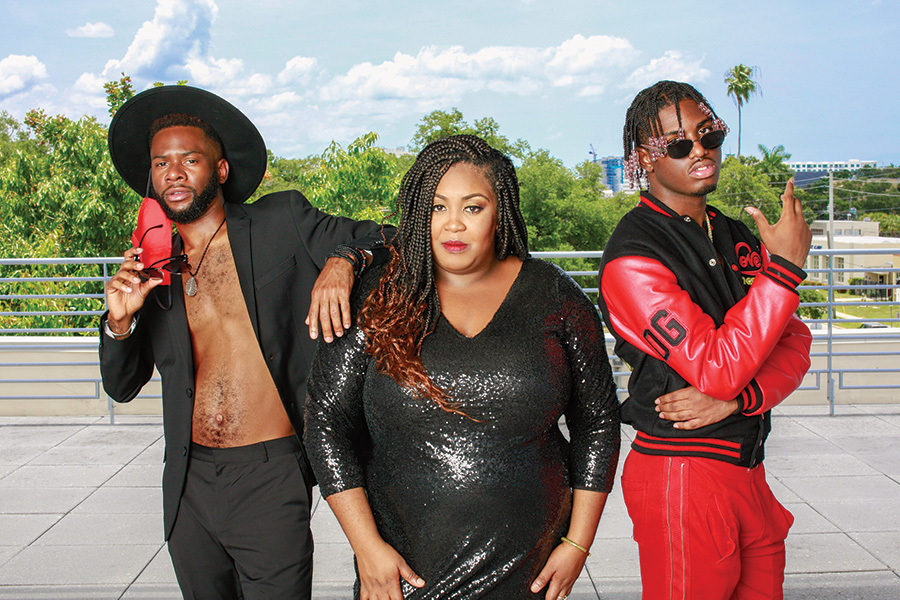To carve out a succesful career as a solo artist, ambition must be a hunger as undeniable as the need for sustenance itself. It must be an insatiable appetite appeased only by continual labor and even then but briefly. But as Raleigh Mosely, Ariel Blue and Derric Gobourne Jr. came to find out, not even solo artists have to eat alone.
Already stars on the Westcoast Black Theatre Troupe (WBTT) stage, Raleigh Mosely, Ariel Blue and Derric Gobourne Jr. each harbored ambitions for an artistic identity that extended beyond the ensemble but each struggled to realize those ambitions alone. Joining forces, they created a collaborative partnership where they could workshop material, write together and hold each other accountable to their dreams.
They named it RAD, borrowing a letter from each member’s first name. Not a band, each member of RAD retains their own artistic identity and holds ultimate control over their art. “We’re three different artists and three different individuals,” emphasizes Gobourne. But each can take advantage of the collective creativity of the group, bringing a melody, a verse, a chorus or even just an idea to the others and enlisting their help cultivating this seed to full bloom.
“It’s actual chemistry,” Gobourne continues. “We get each other musically.” Mosely agrees. “We already had such a great relationship that writing songs and producing songs together was really easy,” he says. “We know what each other’s thinking and can crank out a song in a few hours.” This mental shorthand extends to recognition of the subtleties behind each member’s sound and style, so that the group can collaborate without sacrificing what makes each of them distinct artists. “It’s dope to have that connection,” Mosely says. As for Blue, she loves the discipline and drive that RAD brings to the work. “It’s good to have people around you who say, ‘No, let’s do it now, not wait,’” she says. And little more than a year after RAD first formed, all three members have a new album out and even bigger plans for the future. SRQ
Ariel Blue

The Multimedia Master Before RAD, Ariel Blue found herself pulled in a hundred directions at once, singing all around town with WBTT and whoever would book a gig. She kept busy but lacked a personal brand and never got around to making the album she dreamed of. Today, Blue stakes out a colorful claim on the creative marketplace with a monthly newsletter called The Blue Print, an upcoming vlog dubbed The Blue Light Special and a four-track EP marking her solo debut, titled simply B.L.U.E. “It takes discipline,” she says, “but I’ve learned to be consistent about putting out content.”
In The Blue Print, readers get an inside look at Blue’s musical process and proclivities. An adjunct to her musical aspirations, she keeps it short and focused on the art and her personal approach, being careful not to stray off topic into politics or ramblings. As a point of continual engagement with her fans, she often shares playlists to show what she’s listening to and where she finds influence. With the launch of the vlog, she hopes to go even more in depth with her fans, who will be able to leave comments and engage with Blue, as well as other artists in the community, who can join her on video to talk about their craft and the local arts scene.
But it’s B.L.U.E., the debut EP, that has Blue most excited. “It’s new territory,” she says. “It’s the sounds that I like.” More R&B-tinged and hip-hop-flavored than the soul and Motown sounds she’s known for through WBTT, Blue draws more inspiration from the likes of Mary J. Blige than Martha and the Vandellas for this first solo outing, mining lived experiences to project strength and empowerment. The emotionally charged “Love Rehab,” for example, recounts a semiautobiographical story of a young woman choosing herself and her dreams over a romantic relationship that holds her back. And Blue is ready to stop holding back and introduce audiences to the artist they didn’t know they didn’t know. “I hope they get another side of me,” she says, “and realize that it’s never too late to do something new.”
Raleigh Mosely

The Throwback to the Future Plenty of audiences have seen Raleigh Mosely onstage before, but he wonders if they’ve ever actually seen him. “Onstage, I am basically clay for somebody else’s vision, somebody else’s dream,” he says. With his new album, Leave a Message, Mosely shows them what they’ve been missing. “It allows people to see me more personally and understand me more personally,” he says.
“I can put more of my own personal touch in my own music.” Mosely has had melodies and lyrics dancing around in his head since high school, near-complete songs that he could never bring himself to finish, always questioning, always busy. But with RAD at his back, these long-gestating projects sprung to full form in a matter of months and Mosely can finally tell his own stories. On tracks like “Why’d You Have to Go?,” borne from Mosely’s experience with a close friend exiting his life, ideas he’s held in his head since high school find life. “It’s not about love, but it could be,” he says enigmatically, before answering the bigger question on his mind: “I hope people can get Raleigh and can understand me, because there’s so much of me on there.”
Heavy on the gospel sound but with a solid R&B lean, FreightSans BookItalic reflects Mosely’s roots and inspirations as an artist with one foot in the past and the other treading toward the future. “I grew up in church,” he says, but was undoubtedly steeped in the sounds and atmosphere of ’90s R&B, making special mention of vocal trio SWV and Lauryn Hill, whose music he still loves. “I used to want to be born in the ’70s,” he says, “so I could be a teenager in the ’90s.” An obsession with New Jack Swing rounds out Mosely’s personal acoustic soundscape and injects its own infectious energy into the mix. “It’s an homage to a throwback sound,” he says, “but it’s 2020, so it’s the future too.”
Derric Gobourne Jr.

The Gallant Go-Getter “First and foremost, I’ve always wanted to be the greatest entertainer of all time.” So the conversation opens with Derric Gobourne Jr., the youngest member of RAD and the one whose wide range of projects might seem scattered if not for the endless energy he exudes but never exhausts. At 22, he’s already released his debut album, 2018’s Supremacy, which built a following in Japan but the artist now considers it underwhelming.
“My ego got in the way of the first album being all it could be.” He tours local schools and Boys & Girls Clubs with a show that’s part concert, part motivational speech, featuring original music and all wrapped around a simple premise: “You can do whatever you want, just do it through love and not for love.” And earlier this year he wrangled together 35 artists from around the world to remotely record and produce the sprawling social justice anthem “Make Time for Love,” raising money to prevent child abuse. Childhood, as a concept, seems to factor heavily into Gobourne’s world. He revisits his own regularly. “It makes you pure,” he says, “and keeps you lighthearted.”
He already talks of nostalgia and marks moments in time by the music he listened to. One of his greatest influences remains one of his oldest friends: Barney the dinosaur, something he revealed only recently on the WBTT stage, performing a song named “Childhood.” “The message is the same for me and him,” says Gobourne, “World peace and love.” But for all this, Gobourne still waits for audiences to see the real him.
“Most people don’t know me as a singer,” he says. “They know me as a dancer.” Maybe the new album, infused with creative insight from his time with RAD, will change that. Titled Shine, the album sees Gobourne remain true to his New Jack Swing roots while infusing an array of formidable inspirations, including more than a bit of Parliament-Funkadelic.
“This album is much more funk-oriented than the first.” and a whole lot of Stevie Wonder, particularly Songs in the Key of Life. Inspired by his collaboration with Blue and Mosely, the album features more than a few guest artists and instrumentalists to fill out the sound. “It’s an upgrade,” he says, “but still has the classic Derric Gobourne sound.” SRQ









